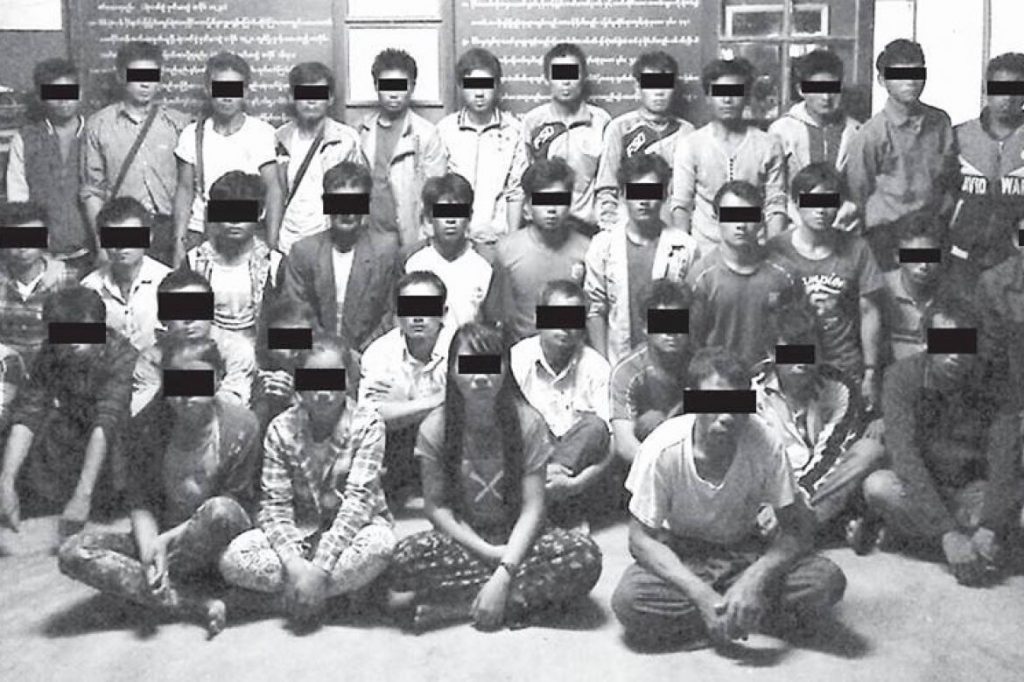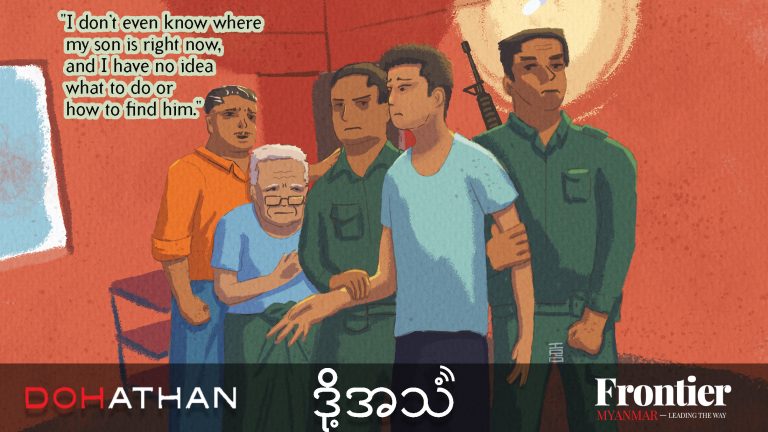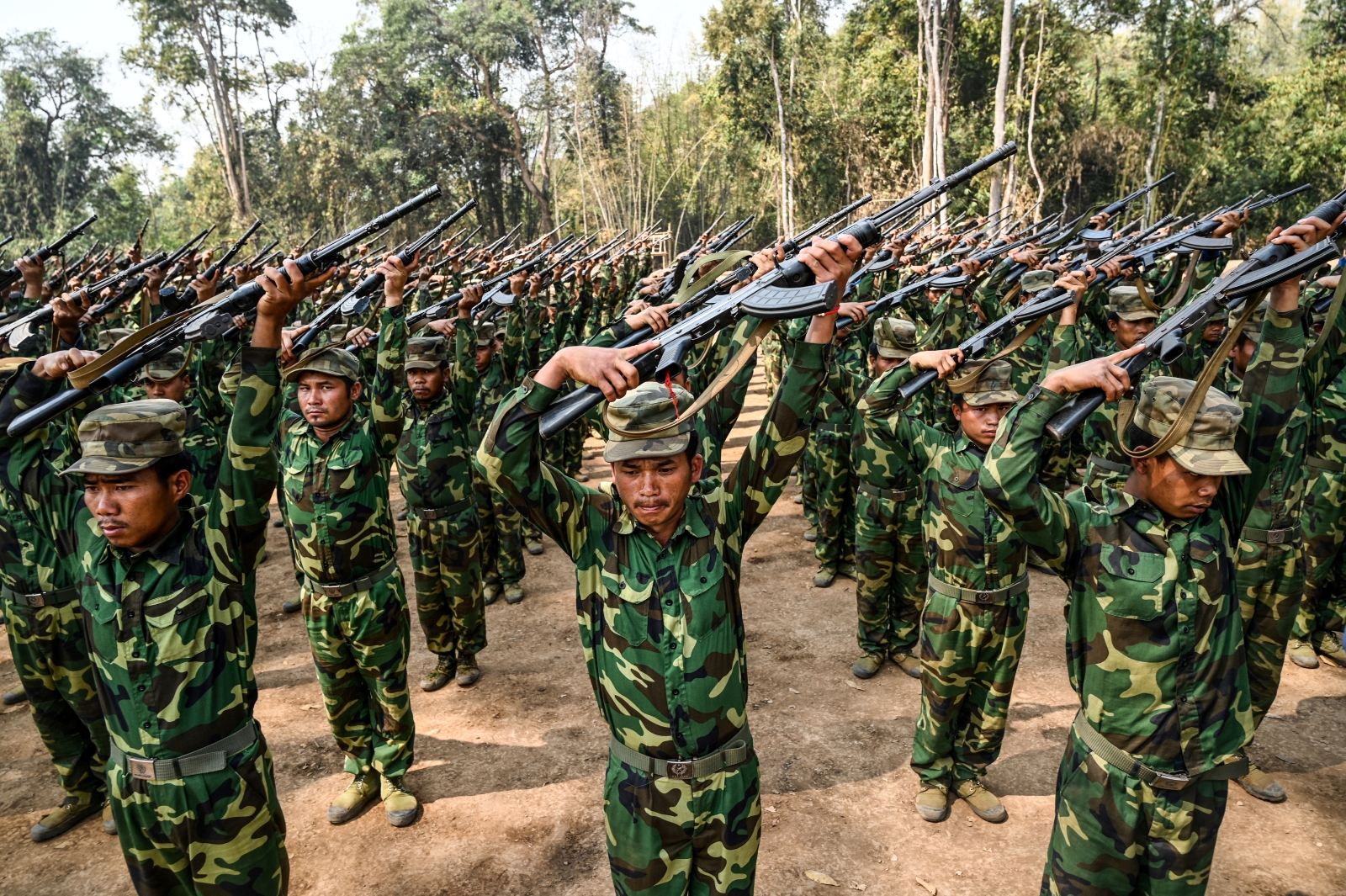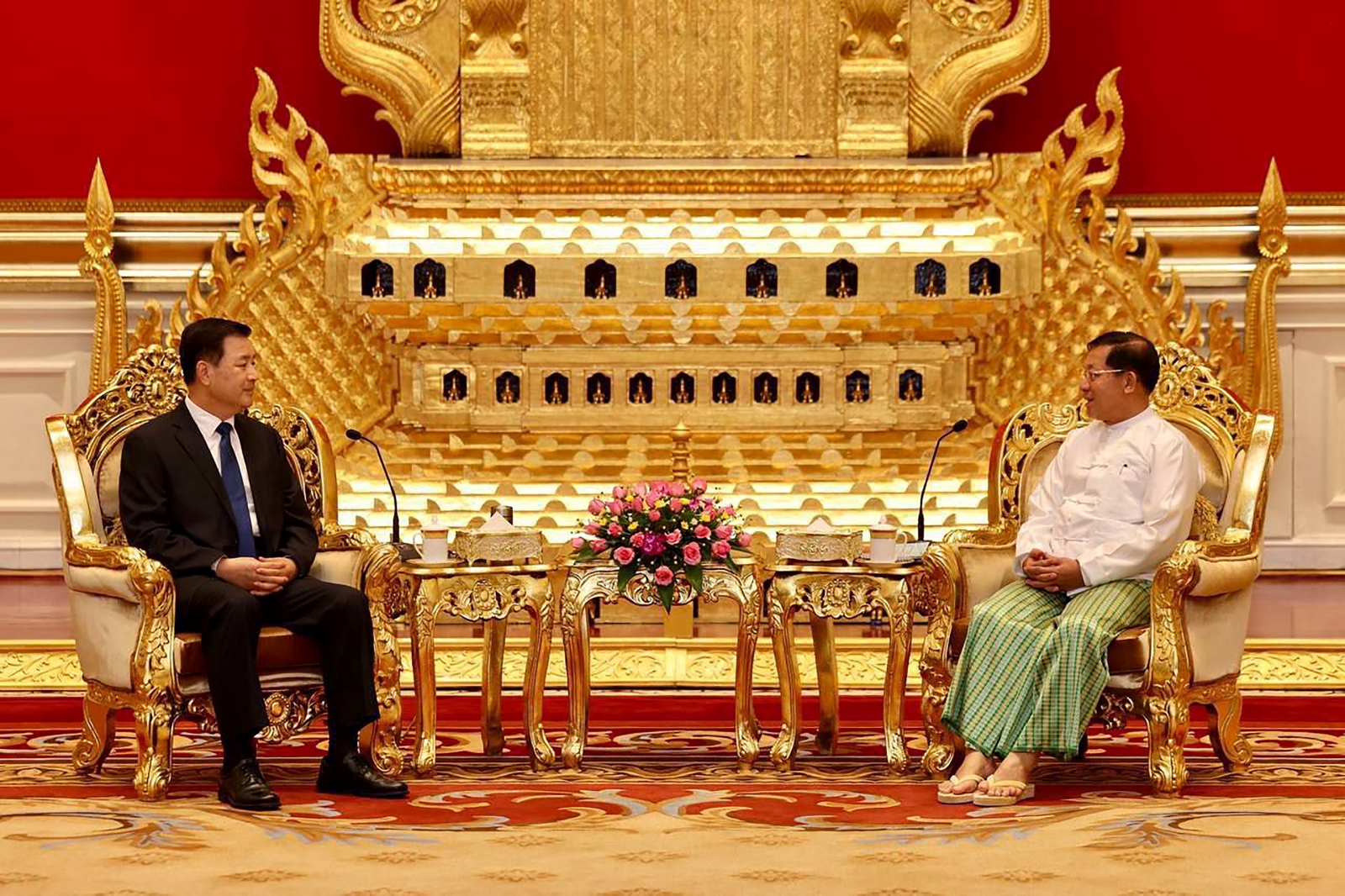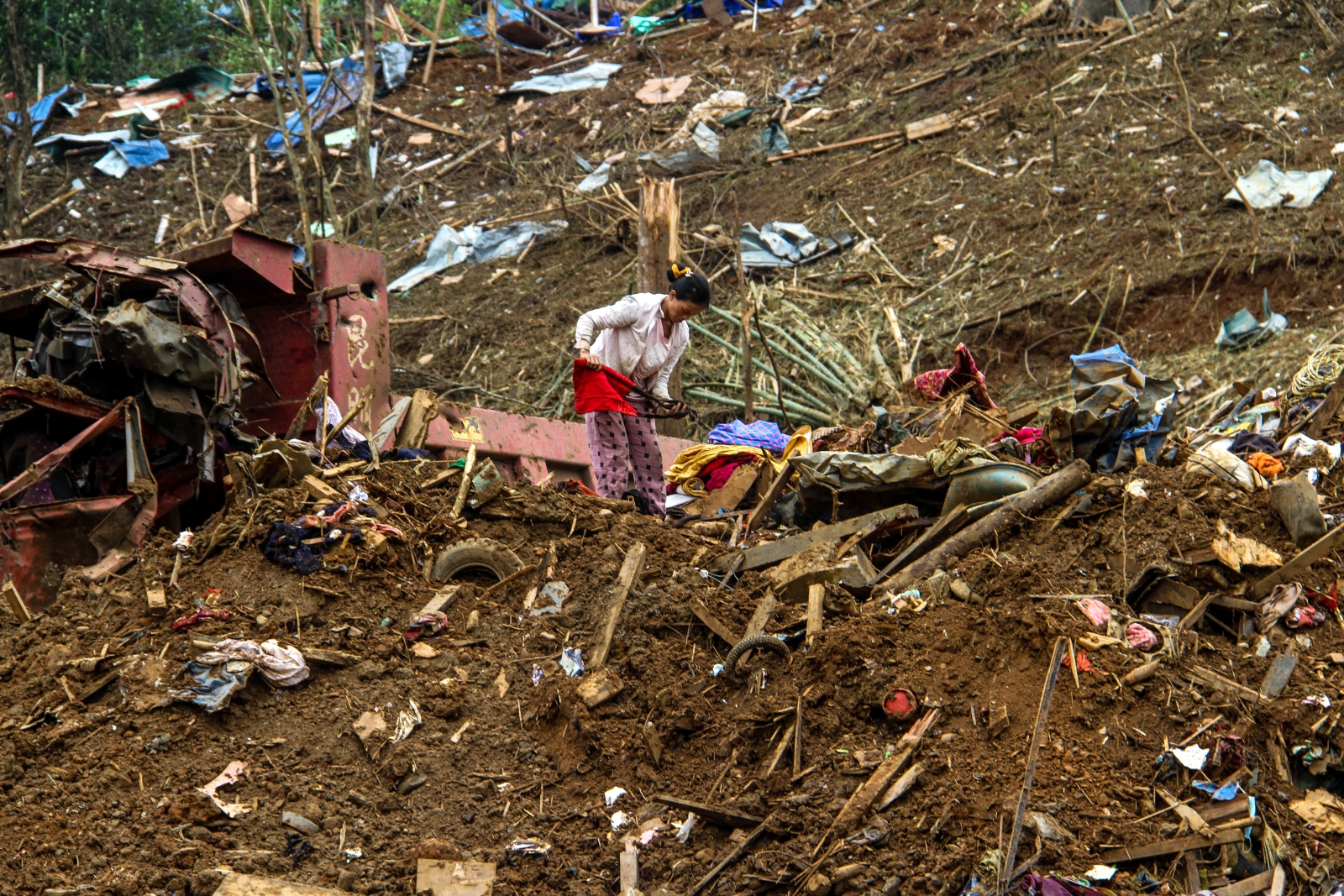The Kachin Independence Organisation says 49 young people who travelled to Laiza did not participate in military training, contrary to government claims.
By PAUL VRIEZE | FRONTIER
LAIZA, Kachin State — The Kachin Independence Organisation (KIO) has condemned Myanmar authorities for charging 49 Kachin youths under the Unlawful Association Act, saying they were not rebel fighters and had only attended the KIO’s civil empowerment programs.
In their first public comment on the Oct. 11 arrests, KIO representatives in Laiza clarified the events that led to the detention of the group, most of whom are ethnic Lisu and Rawang from northern Kachin State’s remote Putao Township.
Gam Awng, secretary of the KIO’s Department of General Administration, told Frontier the group came to Laiza for a 25-day training program on growing opium-substitution crops, which included additional courses on drug abuse, Kachin language and culture, democracy, federalism, and KIO political ideology.
Because Myanmar army shells landed near the Agricultural College in Laiza, a town on the Chinese border and site of the KIO’s headquarters, the training was cut short and the group left for Mai Ja Yang, another KIO-held town, to travel onward to Bhamo and back to Putao.
Support more independent journalism like this. Sign up to be a Frontier member.
But the road was too dangerous because of fighting and they were forced to take a detour through China. Gam Awng said the group was apprehended by Chinese immigration officials for lacking border passes and turned over to Myanmar authorities.
The group has been charged under Article 17.1 of the 1908 Unlawful Association Act, a blanket charge frequently used during the junta era to punish any form of contact with rebel groups. If found guilty, the youths face between two and three years in prison.
Military-owned newspaper Myawady had previously reported the group was arrested for receiving military training in Mai Ja Yang.
Lt-Col. Naw Bu, director of the KIO News and Information Department, denied the report, saying, “If they received military training we would never send them back (to government areas).”
He said church leaders were trying to negotiate with authorities in an attempt to secure the group’s release from Bhamo Prison. Kachin Baptist Convention leaders could not be reached for comment on the case.
Lawmaker Khin Maung Myint (NLD, Kachin-9) said he would attempt to raise the issue of the arrest with the Minister of Home Affairs next week.
“Forty-nine people is a very large number to arrest; they should be released,” he said. “They were just getting agriculture training to develop the country.”
Gam Awng said the training program had been conducted eight times without incident and he was “very sad” to hear news of the arrests.
“We should ask for the abolishment of Article 17.1 in the peace process. This law is frequently used against the Kachin people,” he added.
Eight ethnic rebel groups that signed the so-called Nationwide Ceasefire Agreement last year are no longer designated as “‘unlawful” by the government.
The KIO is one of several major rebel groups engaged in negotiations with the army and the National League for Democracy (NLD) government over joining the accord.
The Free Burma Rangers, a humanitarian group, documented a significant increase in Tatmadaw ground offensives and airstrikes in Kachin and northern Shan states between June and August, during the weeks leading up to the government’s 21st Century Panglong peace conference.
Since late August, the KIO’s armed wing, the Kachin Independence Army, has said it has come under heavy attack from the Myanmar Armed Forces, with daily shelling, airstrikes and ground attacks taking place on key mountain posts around Laiza.


